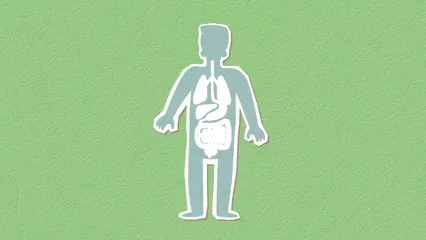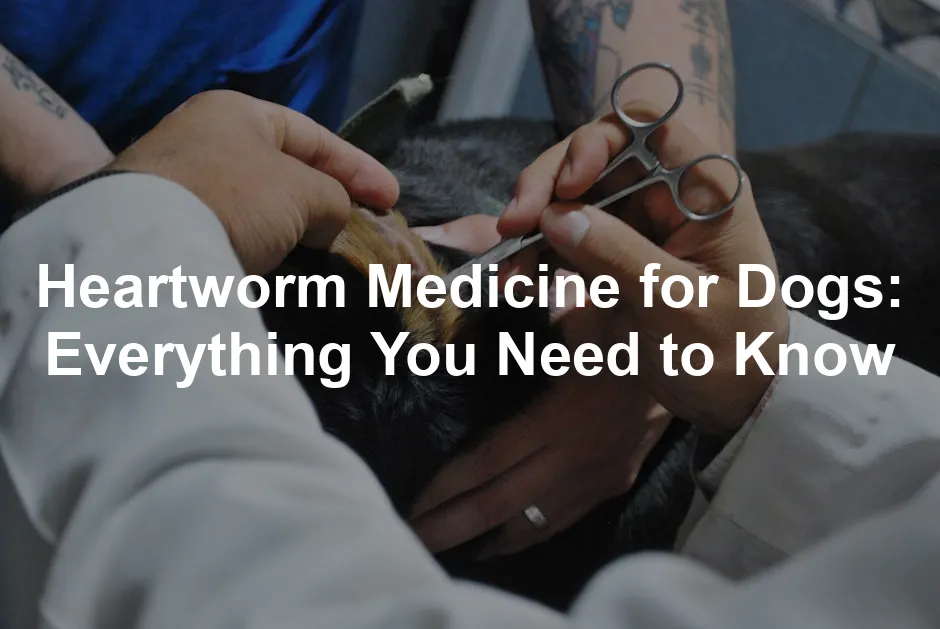Introduction
Heartworm disease poses a serious threat to dogs. This condition can lead to severe health issues, including heart failure. Preventive measures, like heartworm medication, are crucial to protect your furry friend. It’s much more cost-effective to prevent heartworm than to treat it once infected.
Speaking of prevention, have you considered Heartgard Plus Chewables? These tasty treats not only make your dog feel like a superstar but also prevent heartworm disease effectively. Who wouldn’t want to give their pup a little something extra while keeping them safe?

Summary and Overview
Heartworm disease is caused by parasitic worms living in a dog’s heart and blood vessels. Mosquitoes transmit these worms when they bite an infected dog, leading to serious health complications. Common symptoms include coughing, lethargy, and weight loss.
In the United States, heartworm is widespread, impacting roughly one million dogs. Prevention is key, as it’s easier and less expensive than treatment. Regular veterinary consultations are necessary to obtain heartworm medication. Your vet can recommend the best options, including monthly pills, topical treatments, and injectables. Each type of medication helps keep your dog safe from this life-threatening disease.
If your dog is also prone to fleas, consider pairing your heartworm prevention with Advantage II Flea Prevention. It’s like a superhero cape for your dog against those pesky pests! You wouldn’t want your furry friend to be a flea buffet, would you?

Understanding Heartworm Disease
What is Heartworm Disease?
Heartworm disease is a serious condition affecting dogs. It results from parasitic worms living in the heart and blood vessels. Mosquitoes transmit these worms through bites, making prevention vital. Once inside, the worms can grow up to a foot long.
Symptoms of heartworm disease can be subtle at first. Early signs include coughing, fatigue, and weight loss. As the disease progresses, it can lead to severe cardiovascular issues. The heart struggles to pump blood effectively, resulting in high blood pressure and heart failure. Without treatment, the outcome can be fatal.
Symptoms and Diagnosis
Recognizing heartworm symptoms early is crucial. Common signs include a persistent cough, lethargy, and reduced appetite. As the disease advances, dogs may experience difficulty breathing and a swollen abdomen.
Veterinarians diagnose heartworm disease through blood tests. These tests can detect adult heartworm proteins. Regular testing is essential, especially in areas where heartworm is prevalent. Early detection allows for more effective treatment options. Always consult your vet if you notice any unusual symptoms in your dog.

Importance of Preventive Care
Why Prevention is Key
Preventing heartworm disease is far better than treating it. Treatment can be costly and time-consuming, often requiring multiple vet visits and extensive medications. Did you know that heartworm disease affects around one million dogs in the U.S. alone? This statistic highlights the risk your furry friend faces.
Investing in preventive care not only saves money in the long run but also promotes your dog’s long-term health. Heartworm prevention provides peace of mind for pet owners. You can rest easy knowing your pup is protected from this serious condition. With regular preventive measures, you help ensure a happier, healthier life for your dog.
And hey, while we’re on the topic of keeping your dog happy, don’t forget about playtime! A KONG Classic Dog Toy can keep your dog entertained for hours while you’re busy saving them from heartworms!

Types of Heartworm Preventive Medications
When it comes to heartworm prevention, several options are available. Monthly pills are popular and easy to administer. They contain active ingredients like ivermectin or milbemycin, which kill heartworm larvae. Topical treatments are another choice. These are applied directly to your dog’s skin and can be effective against fleas and ticks too.
Injections are another option, providing protection for up to six months. Brands like Interceptor Plus and Revolution offer reliable choices. Each type has its pros and cons. For instance, monthly pills require consistency, while injections reduce the risk of missed doses.
Choosing the right medication depends on your dog’s age, weight, and overall health. Puppies can start prevention as early as eight weeks old. Always consult your veterinarian for the best recommendation tailored to your pet’s needs. With the right preventive care, you can keep heartworms at bay and ensure your dog stays healthy.

Choosing the Right Medication
Factors to Consider
Selecting the right heartworm medication for your dog is essential. Start by considering your dog’s age and weight. Puppies might require different formulations than adult dogs. Always check the dosage guidelines to ensure safety.
Next, think about any pre-existing health conditions your dog may have. Dogs with health issues may need specific medications or dosages. It’s essential to inform your veterinarian about any concerns.
Lifestyle factors also play a significant role. Is your dog mostly indoors or does it spend time outside? Outdoor dogs are at a higher risk for heartworm exposure. This information will help your vet recommend the most suitable preventative treatment.

Veterinary Consultation
Before giving your dog any heartworm medication, consulting your veterinarian is crucial. A heartworm test is necessary to ensure your dog isn’t already infected. This step helps prevent complications from medication.
Preparing for your vet visit is simple. Write down any questions you have about heartworm prevention. Ask about the best options based on your dog’s age, weight, and lifestyle.
Understanding prescription requirements is also important. Some heartworm medications need a prescription, while others can be purchased over-the-counter. Your vet can guide you through the options and ensure your dog receives the best care.

Administering Heartworm Medication
Best Practices for Administration
Administering heartworm medication properly ensures your dog stays protected. Follow dosage instructions carefully to avoid mistakes. Consistency is key; establish a routine that fits your lifestyle.
If you’re giving pills, try hiding them in a treat. Many dogs will happily swallow their medication this way. Be sure to observe your dog after giving the medication to confirm it was taken.
What if you miss a dose? Don’t panic. Give the missed dose as soon as you remember, unless it’s almost time for the next one. In that case, skip the missed dose and resume your regular schedule. Always consult your veterinarian for specific instructions if you’re unsure.

Common Myths About Heartworm Prevention
Many pet owners hold misconceptions about heartworm prevention. One common myth is that indoor dogs are safe from heartworms. Unfortunately, mosquitoes can enter homes, exposing indoor pets to these dangerous parasites.
Another belief is that natural remedies can replace conventional medications. While some natural solutions may support overall health, they lack the proven effectiveness of veterinary medications. Relying solely on them can leave your dog vulnerable.
Some think heartworm prevention is only necessary during specific seasons. In reality, heartworms can be present year-round in many regions. Consistent protection is essential, regardless of the time of year. Understanding these misconceptions helps ensure your dog remains safe and healthy.

Conclusion
Heartworm prevention is vital for your dog’s health. Regular medication not only safeguards against this severe disease but also saves you from costly treatments. Take proactive steps to protect your furry friend by adhering to a consistent prevention schedule. Always consult your veterinarian for personalized guidance on heartworm medications and care. Your dog’s well-being depends on it.
And while you’re at it, consider investing in a PetFusion Ultimate Dog Bed. Comfort is key for your pup, especially after a long day of heartworm prevention and play!

FAQs
What are the signs of heartworm disease in dogs?
Common symptoms include coughing, lethargy, and weight loss. As the disease progresses, dogs may show difficulty breathing or a swollen abdomen. If you notice these signs, seek veterinary care promptly.
How often should I give my dog heartworm medication?
Most heartworm medications should be given monthly. Consistency is key to ensuring your dog stays protected. Always follow your veterinarian’s recommendations and maintain a regular schedule.
Can heartworm disease be treated?
Yes, heartworm disease can be treated, but it is complex and costly. Treatment often involves multiple vet visits and medications. Prevention is much easier and more effective than dealing with an active infection.
Is heartworm prevention necessary year-round?
Yes, year-round prevention is crucial in many regions. Heartworm-carrying mosquitoes can be active even in colder months. Consult your veterinarian to determine the best prevention strategy for your area.
What should I do if my dog misses a dose of heartworm medication?
If you miss a dose, give it as soon as you remember. If it’s close to the next scheduled dose, skip the missed one and continue your regular routine. Always check with your vet if you have concerns.
Please let us know what you think about our content by leaving a comment down below!
Thank you for reading till here 🙂
All images from Pexels





